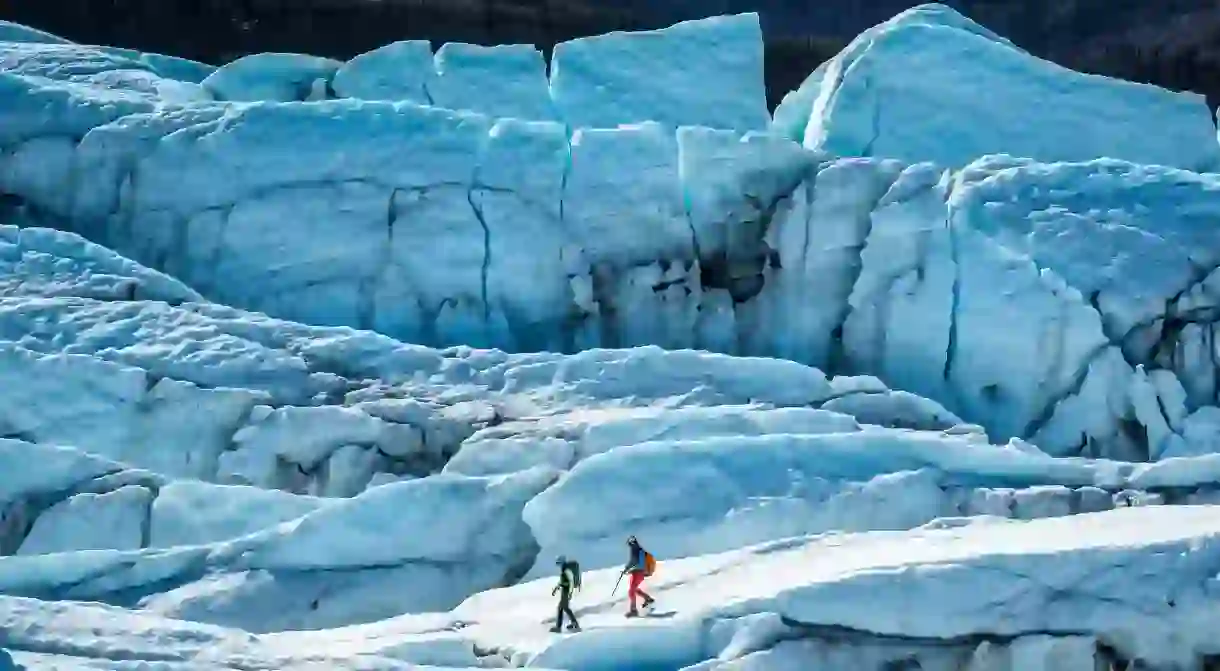Seven Glaciers You Can Walk On in Alaska

Glacier trekking is often on the bucket list of travelers to Alaska. And for good reason – inspecting the menagerie of deep blue pools and crevasses on the top of the ice or standing at its base, gazing up at the incredible face of a mass that is both hundreds of years old and always changing, is nothing short of incredible. Here are just a few of the more easily accessible glaciers in Alaska.
Did you know – Culture Trip now does bookable, small-group trips? Pick from authentic, immersive Epic Trips, compact and action-packed Mini Trips and sparkling, expansive Sailing Trips.
Matanuska Glacier

Just a few hours north of Anchorage, Matanuska is often the first glacier that those new to Alaska get to visit. It sits just off the Glenn Highway, its impressive breadth spans more than four miles wide and 27 miles long, meaning you can get rather impressive views even from a roadside pullout. Though to really appreciate the might of the largest glacier accessible by car in the United States, pay the $30 fee to get onto the private land the glacier flows upon and spend the day exploring the moulins, ice walls, and electric blue ice.
Exit Glacier

Part of Kenai Fjords National Park, Exit Glacier is a wildly popular hiking destination on Alaska’s Kenai Peninsula, partially because it acts as a choose your own adventure story, with a multitude of hikes on and around the glacial mass. Some of the most popular include most easily accessible Edge of the Glacier Trail (aka the Lower Trail) and the nine-mile round trip Harding Icefield Trail.
Mendenhall Glacier

One of the most popular glaciers in Alaska, Mendenhall sits just 12 miles outside of Juneau. The West Glacier Trail, a roughly four-mile jaunt, is the easiest way to get there. However, it’s not the best maintained trail, so going with a guide could save you from getting lost (bonus: they’ll have all the tools you’ll need to hike safely on the glacier and know where the best ice caves are).
Portage Glacier

When the Begich-Boggs Visitors Center was originally built, it was right at the foot of Portage Glacier. But in the decades since, the glacier has retreated so fast that, even with the center’s telescopes, you can’t see it. There are still several trails that will take you to the glacier, as well as one option that’s favored among locals: wait until the lake freezes over in the winter and walk across the flat surface to the glacier’s base.
Byron Glacier
Short and sweet, it’s less than a mile walk from the trailhead to the foot of Byron Glacier. The path there is well maintained and flat, though once you get to the foot of the glacier, it gets rockier and depending on the time of year, some shallow stream crossings might be necessary. The reward, however, is some incredible ice caves that look like something out of the Superman films.
Spencer Glacier
What makes this glacier unique is the fact that it’s only accessible by the Alaska Railroad. Sheer walls of ice rising 3,500 feet marry braided rivers and crashing waterfalls to create an incredible recreation area that wows. In addition to climbing on the glacier, it’s possible to go kayaking among the icebergs in the water below.
Root Glacier

Just a mile and a half walk from Kennicott in Wrangell-St. Elias National Park, Root Glacier is a trip visitors can do solo or with a guided operation. The walk there is a feast of views of the glacier and nearby peaks – some covered in snow resembling marshmallow fluff and some a lush emerald green all the way to the top. The glacier is known for having infinite glacial streams and pools of blue speckling across its top.













